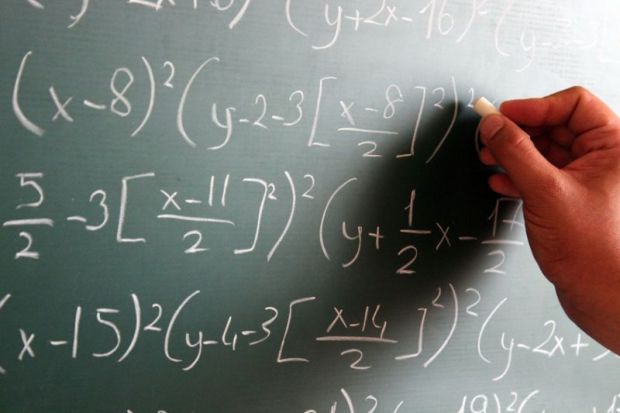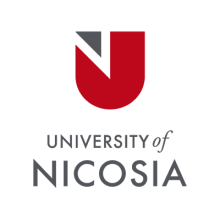
What is mathematics?
In education systems across the globe, from primary to higher education learning institutions, there is one constant subject, a language universally spoken: mathematics.
A basic definition of mathematics (or maths, or math, depending where you are in the world) is that it is an education in numeric sciences, using a range of different approaches including algebra, calculus and basic arithmetic. While mathematics is a key element of subjects ranging from economics to physics, maths as a university subject often focuses on understanding and testing theories in mathematical and scientific discourse - or so-called "pure mathematics".
Mathematicians can come to both an understanding of the universe’s building blocks in fields such as quantum mechanics, and have the chance to be educated in fascinating theorems and abstract concepts, which teach students a number of applicable skills that are transferable across a number of professional fields.
Find out which top universities offer a mathematics degree
What do you learn on a mathematics degree?
Within a maths degree, a student may expect to find a higher level of contact hours in the first year of study, as tutors work with students to ensure an understanding of the core modules and concepts being discussed in lectures and seminars.
A typical course for a first year undergraduate will be an introduction to abstract algebra, as well as fields such as non-linear differential equations. Later years in the degree will see a greater level of freedom as students will pick from a wider selection of modules and explore in greater depth the areas of mathematics that appeal to them.
Maths degrees are increasingly digitally based, interlinking with computer science through modules such as symbolic computation and automated theorem proving.
Maths is also an ideal joint honours subject, for its teachings can be a foundation for study in computer science, engineering and statistics among others. For an undergraduate course, a typical course length would be three years, though this may be four in educational systems such as the United States, or if the course includes a year abroad study or a sandwich work placement.
What should I study if I want to study mathematics?
Maths is not a subject to simply fall into, and will be taught on the assumption that students will have a concrete understanding of basic concepts in maths and applied mathematics before beginning a course.
Universities typically accept students who have done well in maths at school and further education level before applying. Universities will look at aptitude in related school subjects such as the traditional sciences (such as chemistry).
It is also important that language and writing skills are not neglected, as many courses will include lengthy essay assignments.
More subject guides
What can you do with an art degree?
What can you do with an architecture degree?
What can you do with a veterinary science science degree?
What can you do with a biology degree?
What can you do with a sports science degree?
What can you do with a medicine degree?
What can you do with a design degree?
What can you do with a performing arts degree?
What can you do with a business degree?
What do people who study mathematics do after graduation?
While a maths graduate may spend a career exploring and teaching others theoretical mathematical knowledge, a qualification in the subject can also open doors to a wide range of professional fields.
Employers appreciate the skills of data analysis and the innovative, original thinking that can be taught in a maths degree. Maths graduates are ideal for positions in the finance sector such as an investment analyst or tax advisor.
In a position such as an actuary or chartered accountant, a mathematics degree is only a first step, as qualifications for these professions require years of further training and examination.
Maths is also a subject closely interlinked to statistical analysis. This presents job opportunities in social research such as the compilation of survey and polling data, as well as in scientific studies in fields such as geography and medical statistics. While this work can be a source of full time employment following a bachelor’s degree, many institutes also offer postdoctoral positions as a research fellow or equivalent.
There is also a clear pathway from the computer based skills learned in a mathematics degree to an IT or software development based career. Many video games programmers come from a maths background, combining creativity with technical aptitude to develop products in one of the fastest growing industries today. Security agencies will also employ a team of trained mathematicians, who will be using some of the most powerful computers in the world to develop cryptography and internet security.
Student experience of studying mathematics
Caltech: ‘uniquely difficult but a wonderful place to study’
Smaller does not mean there is less opportunity
Famous people who studied mathematics
Among the most well-known people ever to take a maths degree is Albert Einstein, who at the age of 17 was already on a mathematics teaching programme at Zurich Polytechnic.
Among many other notable maths pioneers is Emmy Noether, who studied the subject at Erlangen University and went on to make seminal contributions to physics and abstract algebra.
A maths degree can also be a springboard to entrepreneurial success, such as Sergey Brin who studied at the University of Maryland before co-founding Google and Reed Hastings, co-founder of Netflix, who has a bachelor’s degree in maths from Stanford University.
Other famous mathematicians include model Cindy Crawford, who studied the subject at Northwestern University and former professional wrestler and star of The A Team, Mr. T, majored in the subject at Prairie View A&M University.
Read more: Best universities for physics, chemistry and maths degrees



















